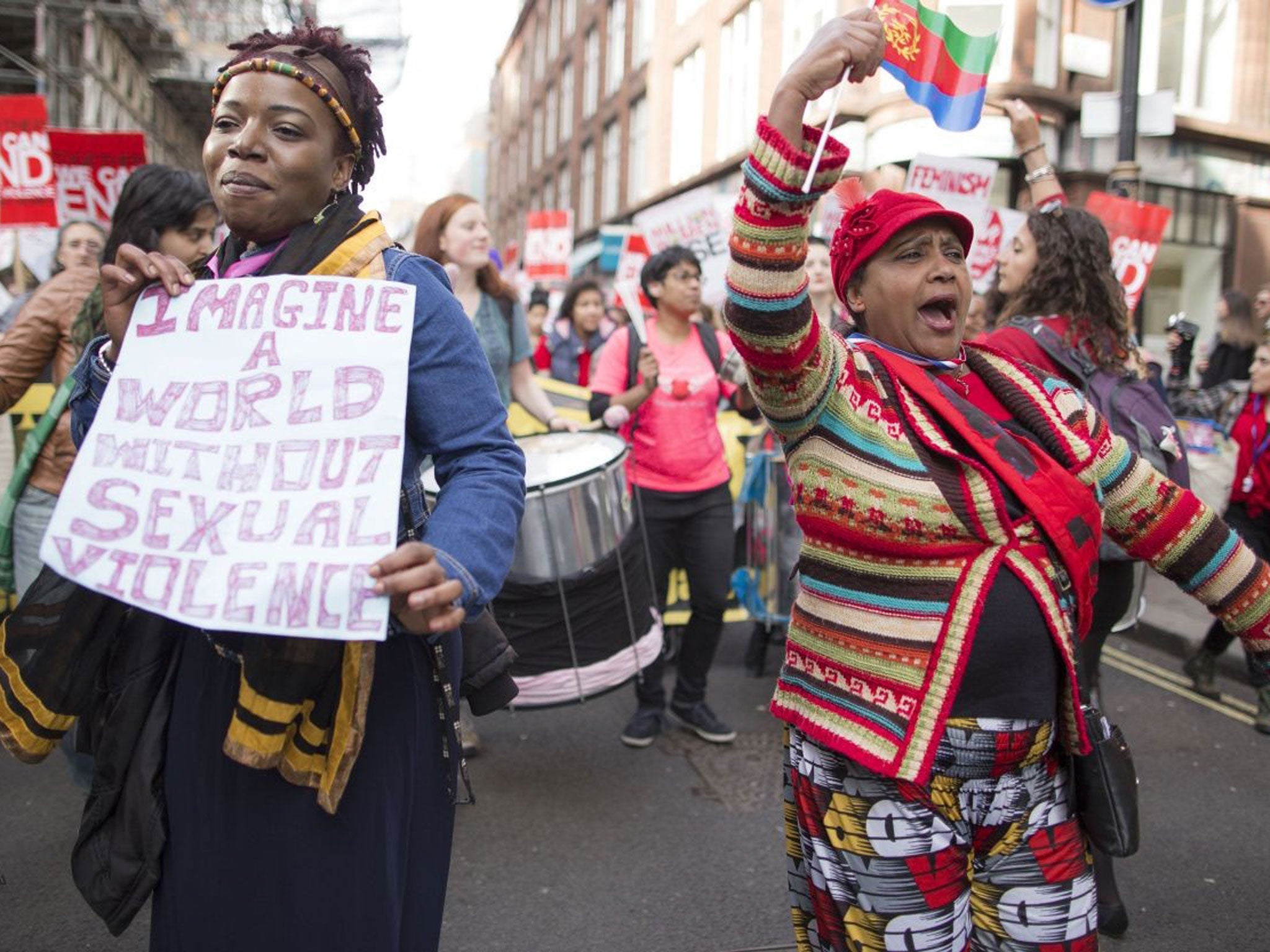International Women's Day: If you want to celebrate women then give us true equality
There's something jarring about a day which celebrates a gender that is still so unequal

It’s the most wonderful time of the year. I refer, of course, to International Women’s Day. It’s on Sunday, in case you’d forgotten. You chauvinist.
I had never heard of International Women’s Day until I lived in Russia in the early Noughties. Over there, it’s a big deal. Such a big deal that Artem, the sullen son of my landlady, knocked on my bedroom door on the morning in question and silently handed me a red rose with a leopard-print silk scarf wound around its stem.
Later, when I ordered my blinis in my local café, they came with a side order of wilted rose. And so it went on – a day of random roses, cowed men handing out flowers in the street, and women on the metro, buckling beneath bouquets and teddy bears.
It was all quite nice in a slightly creepy way – like a free-for-all Valentine’s Day, without the smut or scratchy underwear, crossed with the respectful sentimentality of Mother’s Day. So that is how I’ve always thought of 8 March, if I’ve thought of it at all: a rather retrograde celebration of femininity, a chance for men to show the women in their lives that they care on this one day, if not on all the rest.
In fact, its roots lie in radicalism, and, not surprisingly, in remarkable women. The first Women’s Day was organised by the Socialist Party of America in 1909 in remembrance of the previous year’s strike of the International Ladies’ Garment Workers’ Union. It spread as a socialist political event, with 8 March demonstrations and rallies playing a prominent part in the fight for women’s suffrage throughout Europe.
In 1917, the women of St Petersburg went on strike for “Bread and Peace”, demanding the end of the war, food shortages and tsarist rule, among other things. Their actions kick-started the revolution and, in return, Lenin made 8 March an official day. In 1965, it was upgraded to a public holiday in the USSR, “in commemoration of the outstanding merits of Soviet women in communistic construction, in defence of their Fatherland during the Great Patriotic War, in their heroism and selflessness at the front and in the rear, and also marking the great contribution of women to strengthening friendship between peoples, and the struggle for peace”. For all that, they surely should have made it a Women’s Month, not a Day.
So that explains why Russia celebrates IWD. It does not explain the flowers and teddy bears, nor the day’s global spread, which is an altogether vaguer phenomenon. In the mid-1970s, the UN adopted the date as a time to celebrate women’s rights and world peace. Since then it has grown and grown. It is now an official holiday in some 28 countries, including such bastions of women’s rights as Afghanistan and Uganda.
With greater prominence comes greater truculence. Tomorrow one will find as many people mewling “What about an International Men’s Day?” on social media as one will see sisters proclaiming solidarity and adding an IWD hashtag or a purple ribbon to their profile picture. The riposte to that silly question is that every other damned day of the year is Men’s Day, if one is to judge by things like pay, people in power, arranged marriages, rape convictions and so on.
It is a valid point, but there is still, however churlish it sounds, something about IWD that jars. It is not simply the sight of men giving roses to strangers in memory of revolutionaries, nor the absurdity of an Afghan woman, who has been banned from working, getting a day off to celebrate being female.
It is its lack of focus – the idealism of a day dedicated to women in a world where much is still far from ideal for women. On the positive side, in the UK at least, there are more women MPs than ever before (still not enough); a new book by a new feminist is released every week; everyday sexism has become a hashtag and a campaign got women on to the banknotes. Fourth-wave feminism is everywhere, everyday now – one paltry day a year looks a bit old-fashioned.
This year’s theme, according to the UN website, is “Make it happen”. The key messages are to “celebrate women’s achievements” and “call for greater equality”. Great. How? This year in the UK there are a bewildering 343 events listed on the IWD website, from showcases of women in technology and business to a Ladies’ Night Out at a casino – “a fabulous, fun-filled evening of pampering, drinks and gaming”, complete with style tips from experts.
The argument runs that as long as there are equality wars to wage, there should be an International Women’s Day. I see battles all around, but 24 hours of ladies’ nights and roses is not the way to win them.
Join our commenting forum
Join thought-provoking conversations, follow other Independent readers and see their replies
Comments
Bookmark popover
Removed from bookmarks